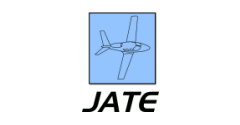Author Background
Native of Indiana, Jonathon Parry attended Purdue University in West Lafayette, Indiana from 2007 to 2011 where he earned a Bachelor of Science in Applied Mathematics From 2018-2020, he earned a Masters in Applied Data Science from Syracuse University in Syracuse, New York. He is currently pursuing a Doctor of Technology degree from Purdue Polytechnic Institute in West Lafayette. In 2008, he joined the United States Navy where he continues to serve. In 2017, he was selected for the United States Naval Test Pilot School (USNTPS) and graduated in 2018 prior to serving as an Aeromechanical Project at Development Test Squadron Two Three (VX-23) He served as the Deputy Program Manager (DPM) for Advanced Development at the Airborne Electronic Attack Systems Program Office (PMA-234) from 2022 to 2024. He currently serves as the Advanced Development Department Head at Air Test and Evaluation Squadron Two Four (UX-24). His current research interests include the test and evaluation of learning enabled systems to support safety critical flight operations.
Donald Costello received the B.S. degree in systems engineering from the United States Naval Academy, Annapolis, MD, USA in 2000, the M.A.S in aeronautical science from Embry-Riddle Aeronautical University, Daytona Beach, FL, USA in 2005, the M.S. in aeronautical engineering from the Air Force Institute of Technology, Dayton, OH, USA in 2009, the M.S. in systems engineering from the Naval Post Graduate School, Monterey, CA, USA in 2011, and the Ph.D. in mechanical engineering from the University of Maryland, College Park, MD, USA in 2020. He is a Permanent Military Professor in the Weapons, Robotics, and Control Engineering department at the United States Naval Academy, Annapolis, MD, USA. His work focuses on the certification and development of unmanned autonomous systems for practical use.
Michael Kutzer received his B.S.E. in Mechanical Engineering from the University of Delaware, in 2005 , his M.S.E. in Mechanical Engineering from Johns Hopkins University in 2007, and his Ph.D. in Mechanical Engineering from Johns Hopkins University in 2012. He is an Associate Professor in the Robotics, and Control Engineering department at the United States Naval Academy, Annapolis, MD, USA as well as an Adjunct Professor at John Hopkins University. His current research interests include Computer Vision, Cyber-Physical Systems, Mobile Robotics, Multi-Agent Systems, and Robotic Manipulation.
Charles Doherty was born in Chicago, IL, in 2001. He received the B.S. degree in Robotics and Control Engineering from the United States naval Academy, Annapolis, MD., USA, in 2022. He is currently serving on active duty in the United States Navy. His work focused on training and the implementation of computer vision applications on unmanned autonomous systems through the use of industrial robot manipulators.
Sarah Hubbard is an Associate Professor in the School of Aviation and Transportation Technology at Purdue University where she teaches undergraduate and graduate classes in aviation management and conducts research to support safe and efficient infrastructure and operations, including the integration of advanced technologies. She has a B.S. degree in civil engineering from Purdue University, an M.S. degree in civil engineering from Texas A&M University, and a PhD in civil engineering from Purdue University. Her graduate studies focused on transportation safety and efficiency. She is a licensed professional engineer and prior to working in higher education she worked in engineering consulting, research, and technical assistance.


